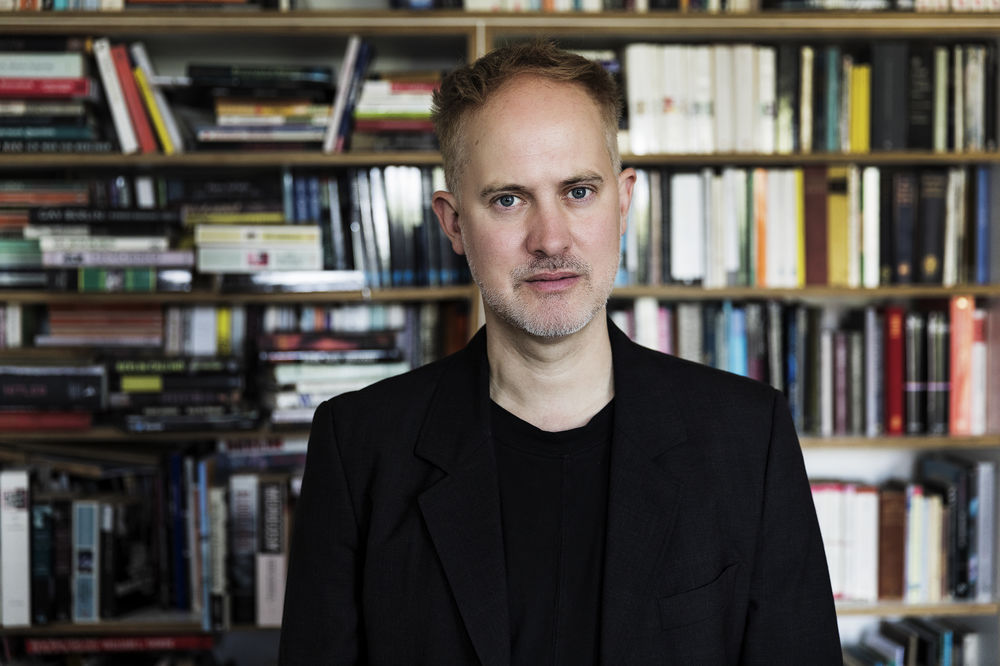F.I.N.D. #14The »Black Paintings« of Rodrigo García
by Joseph Pearson
9 April 2014
Rodrigo García’s name blazed across the international press in late 2011 with his production »Golgotha Picnic«. You assume correctly if you think a theatre piece with this title didn’t meet with the Catholic Church’s approval. You all know Mr. Wilde’s famous utterance: »There’s only one thing worse than being talked about, and that’s not being talked about at all.« With »Golgotha Picnic«, García’s reputation as a blaspheming agent provocateur of the international theatre scene was well established. A French bishop, amidst protests in Toulouse before the Gallic premiere, criticised García’s depiction (to quote the BBC) of Christ as a »madman, dog, pyromaniac, messiah of AIDS, devil-whore, no better than a terrorist.« The production of extreme theatre arrived in Berlin the following year, for the 2012 Foreign Affairs Festival.
Now the Spanish-Argentinean (born in the slums of Buenos Aires province in 1964) is back in the German capital with a new play he wrote, and directs, called »Daisy« (the appellation of a prominent animal in the production). There’s a delirious aspect to this work: frenetic dances with pets and machines, an asphyxiation by motorcycle fumes, representations of Christ grinding his pelvis, masses of cockroaches. I should not forget the appearance of the philosopher Gottfried Wilhelm Leibniz (1646-1716), remembered not only for his contributions to a dizzying number of fields, from mathematics to ethics, but of course also for his remarkable optimism.
Optimism is not one of »Daisy’s« obvious qualities. It is a piece about our fragility and our loneliness. Not just a simple malaise about humanity, but a primal scream in god’s absence. It will be no surprise that Rodrigo García is strongly influenced by Samuel Beckett, Harold Pinter, and the soulful black period paintings of Francisco Goya. For there is poetry here, when hooded figures huddle to the aching strains of a late Beethoven String Quartet.
García says in an interview, »The theme that runs through the whole piece is loneliness.« It is a loneliness accompanied by »pets, cockroaches, snails and especially words«. The animals are everywhere in this production, it’s a veritable bestiary. For García: they are »full of mystery: snails with their slowness, the bunker they carry on their backs. Turtles who remember the beginning of the universe. Cockroaches which are almost indestructible, which have survived every disaster.«
The focus on animals, their detachment, and our relationship and affinity to them in an often cruel and indifferent world provides a philosophical perspective when we pursue the other matter at the heart of »Daisy«, which is its critique of internet technologies.
»Just how evil are they?« you might ask García. And he replies, »Facebook is a social network that encourages outrageously anti-social behaviour, a false, calming sedative to help one endure loneliness. But instead of alleviating loneliness, it heightens it.«
So here too, the vanity of our struggle against our own solitude is illustrated by the indifference of internet applications, by Google which is nonetheless ever-present. Our language is meanwhile impoverished by emoticons.
And yet, still, somewhere in the background, you can hear the slow movement of the Beethoven Op. 132, the »Heiliger Dankgesang« – in a play that questions whether this thanksgiving is at all sufficient.
Daisy
Guest performance of the Compagnie Rodrigo García (Spain) and of Bonlieu scène nationale Annecy (France)
by Rodrigo García
Direction and Set Design: Rodrigo García
Premiered on 4 April 2014

